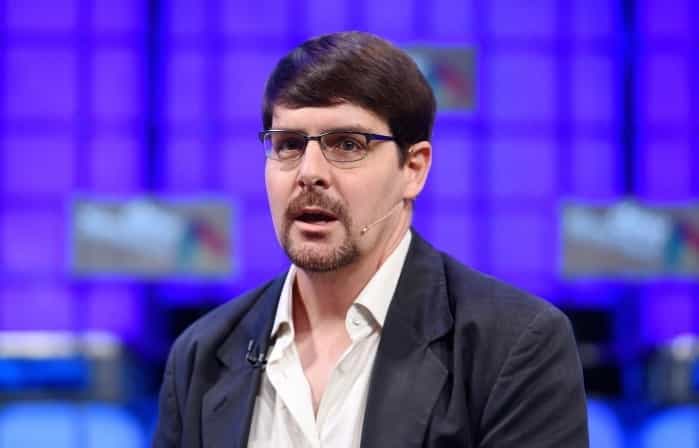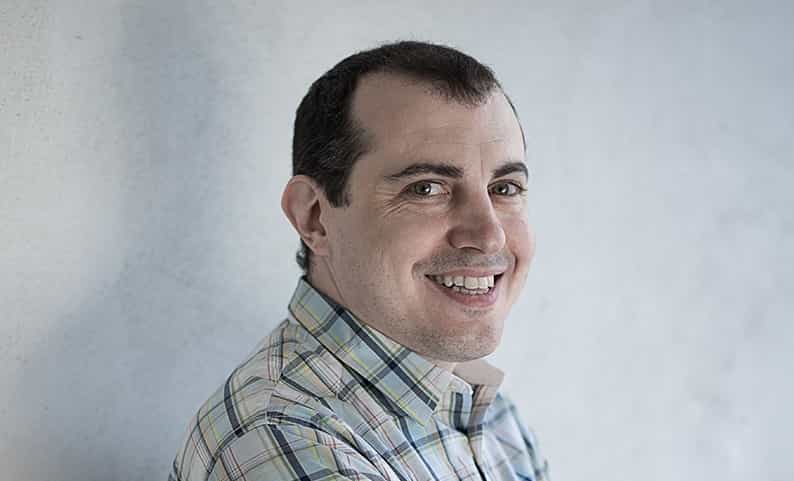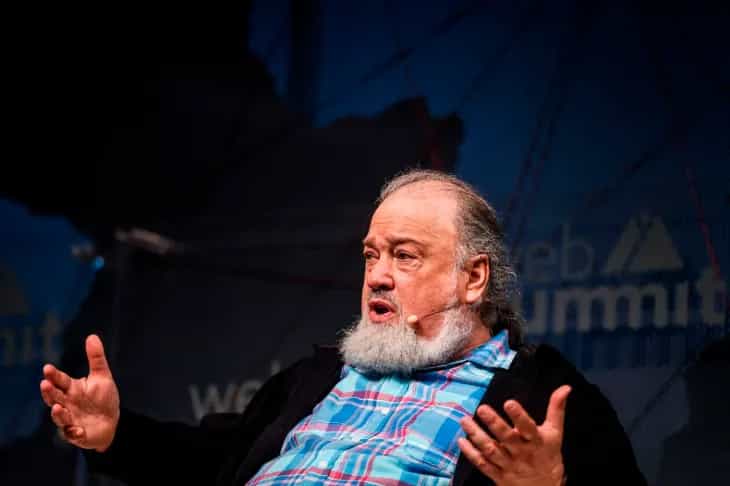Crypto Hall Of Fame: Here Are The Key People Behind Crypto’s Success

Cryptography has come a long way and it is this area of computing that created Bitcoin and other cryptocurrencies. However, most crypto users do not know the scientists and advocates that helped to create the modern blockchain industry.
They are heroes of the crypto world, legends in their own rights. This list features the most exceptional people that worked to change the world around them and unleashed thereby the benefits of digital cryptography on the world.
We look at their lives and how they contributed to crypto’s success through the years. This post includes details such as their line of work, talents, and remarkable personal histories. The list is sorted by relative popularity.
Crypto Hall Of Fame
| Name | Contributions | |
|---|---|---|
| 1. | Satoshi Nakamoto | Bitcoin creator, white paper author |
| 2. | Hal Finney | 1st BTC transaction receiver, reusable proof of work |
| 3. | Laszlo Hanyecz | Bought 2 Pizzas for 10,000 BTC |
| 4. | Vitalik Buterin | Ethereum co-creator and Bitcoin author |
| 5. | Nick Szabo | Bit-gold inventor, Blockchain idea |
| 6. | Gavin Andresen | Bitcoin Foundation |
| 7. | Craig Wright | Bitcoin co-creator |
| 8. | Andreas Antonopoulos | Bitcoin advocate & Educator |
| 9. | Adam Back | Hashcash inventor, Blockchain mining idea |
| 10. | David Chaum | E-cash inventor, first Blockchain idea |
| 11. | Wei Dai | B-money inventor, the Blockchain idea |
| 12. | Dave Kleiman | Coder, Bitcoin co-creator |
| 13. | Diego Gutiérrez Zaldívar | RSK developer |
| 14. | Brock Pierce | Bitcoin advocate & investor |
| 15 | Changpeng Zhao | Binance, BNB Smart Chain founder |
1. Satoshi Nakamoto

Satoshi Nakamoto is claimed to be a Japanese computer scientist that created Bitcoin and its underlying Blockchain technology. However, no one knows who he is.
In truth, Satoshi might have been more than one person, a group effort against mainstream capitalism and established corporations. And seriously, there were enough reasons for Satoshi Nakamoto to remain anonymous in the early days of the movement.
However, there have been numerous claims over the years about who Satoshi might be and who he might not be. But none of these claims or claimants have been able to completely convince Bitcoin and Blockchain fans.
The theory that holds the most water, however, is that Satoshi Nakamoto is a group and not one person. Three persons who should make up this group, at the very least, include Hal Finney, Craig Wright, and Dave Kleiman. This is as per TargetTrend’s research led by my humble self.
2. Hal Finney

Harold Thomas Finney was a lead developer on several console games and also worked for the PGP Corporation, which sold privacy software. He was a cryptography activist, who was very active in the early days of Bitcoin and the Blockchain movement.
Hal Finney was most notable as the first recipient of Bitcoin on the Blockchain, and directly from Satoshi Nakamoto. Technically though, he developed the reusable proof of work system based on Adam Back’s Hashcash, which is the basis of cryptocurrencies today. A computer receives a token for work done, and you can spend that token elsewhere too.
Another curious fact about Finney is that he lived a decade long with a neighbor called Dorian Satoshi Nakamoto, although he denied being the real Satoshi. Still, it remains a strong pointer that he was at the very least, part of the pseudonymous character.
Finney died aged 58 in 2014 from Amyotrophic Lateral Sclerosis, a neurodegenerative disease. He is cryo-preserved.
He also had lots of Bitcoins, as he was among the early miners of the currency. But he spent most of it on medical expenses and maintenance as his sickness advanced. His wife stood by him to the end, including when hackers found him out and tried to extort a thousand Bitcoins.
3. Laszlo Hanyecz

Every year on the 22nd of May is Bitcoin Pizza Day. Then, on that day in 2010, Laslo Hanyecz spent 10,000 BTC to buy 2 Papa John’s pizzas. It all started with this post on Bitcointalk that he would trade 10K BTC for 2 pizzas and another user took him up on the offer.
With Bitcoin around $42,000 (March 2022), this means he spent nearly half a billion dollars on 2 pizzas. But funny as it sounds, he does not regret his actions, and his reason makes sense. Back then, 10,000 BTC were only worth about $30 to $40, so it was a fair exchange. Secondly, no one knew that Bitcoin prices would later skyrocket as they did.
The big problem is, Laszlo did it many more times that summer, spending a total of about 100,000 BTC that year on just pizza. Now, 100K x $42K gives about $4.2 billion, right? That’s not funny.
Still, he is a very smart guy. And he even coded the first GPU miner for Bitcoin, which was minting him all that many BTCs that he spent on pizza. So, he should own more coins.
4. Vitalik Buterin

Born in Kolomna, Russia in 1994, Vitalik Buterin is the co-founder of Ethereum, with Gavin Wood, Di Lorio, Lubin, and Hoskinson. He also co-founded and wrote for Bitcoin Magazine.
Ethereum stands out because it is a blockchain that provides computing power, making it able to offer smart contracts and decentralized applications or dApps.
Buterin initially proposed a scripting language for Bitcoin in 2013, when he was 19. But having received no support, he proposed the creation of a new platform that included a scripting language for general purposes.
In 2014, Buterin dropped out of school and got a $100K grant from Peter Thiel’s fellowship, which enabled him to work full-time on Ethereum. Today, Vitalik Buterin owns an estimated 355,000 ETH, which makes him a dollar billionaire.
5. Nick Szabo

Nicholas “Nick” Szabo is another scientist and cryptographer that helped to pave the way for Blockchain and Bitcoin. He designed a system called Bit gold in 1998, which later laid the foundation for Bitcoin.
The decentralized Bit gold included a proof-of-work mechanism by solving crypto puzzles. Then, there is a Byzantine fault-tolerant public registry to contain the solver’s key, and with each solution becoming part of the next challenge.
Szabo’s solution solved the issue of double-spending prevention, as the time-stamped groups of data became the Blockchain’s foundation. He is also credited with the concept of smart contracts.
6. Gavin Andresen

While the identity of the pseudonymous Satoshi Nakamoto remains a hot topic for crypto fans, one thing for sure is who he or they, handed the Bitcoin project over to – Gavin Andresen.
For many years, Gavin Andresen was the face of Bitcoin, its lead developer, and the founder of the Bitcoin Foundation. Fast forward a few years later and most of Bitcoin’s original code had been changed, many security issues fixed, and lots of real-world functionality built in.
Mr. Andresen has since switched from Bitcoin to support Bitcoin Cash and has not contributed to the original project since 2016.
However, while Satoshi Nakamoto might have created Bitcoin, it was under the leadership of Gavin Andresen that the crypto coin became an Internet thing.
7. Craig Wright

He claims to be Satoshi Nakamoto but he cannot prove it. Or maybe he just refused to. And that’s why many crypto fans consider him a fraud because Satoshi was a group.
Though Mr. Wright might not be the most ethical of computer scientists, he was probably there in the early days of Bitcoin. Or maybe not. If you ask us, we believe he was.
The fact, however, is that Craig Wright has become intertwined with the history and development of Bitcoin and cryptocurrencies. He is currently backing BitcoinSV.
8. Andreas Antonopoulos

Andreas M. Antonopoulos is a British-Greek entrepreneur, author, and Bitcoin advocate. He was born in London, grew up in Athens, and has been involved with Bitcoin since 2012.
Antonopoulos hosts the “Speaking of Bitcoin” podcast, is a consultant to many Blockchain startups, and is a teaching fellow for digital currencies at the University of Nicosia.
He has also written many Bitcoin-related books, including “Mastering Bitcoin”, “Mastering Ethereum”, and “The Internet of Money” volumes 1, 2, and 3.
9. Adam Back

Born in 1970 in London, Adam Back is a British computer scientist, cryptographer, and cypherpunk. He invented Hashcash, a cryptographic proof-of-work mechanism, which builds the foundation of Blockchain mining.
The idea is simple in its original use against spam. It lets a computer use its CPU time to compute a hashing problem and then submit the result with the email. If the hash result is correct, then the sender is probably not a spammer, because spammers rely on sending email as cheaply as possible by avoiding extra work.
Other developers like Hal Finney will take this idea further, by turning the hash result (or proof of work) into a token that you can use as a currency to do other stuff, rather than simply sending emails.
10. David Chaum

Long before Bitcoin was eCash, an anonymous cryptographic electronic cash system. David Chaum conceived this idea and published a paper on it in 1983.
The eCash system included software on the user’s computer to store digital money. This user could spend the money at any digital shop that accepted eCash, without needing an account or entering credit card numbers. It was a revolutionary idea, but credit cards won the market.
David Chaum’s company, DiGicash, eventually went bankrupt in 1998. But his earlier, 1982 paper titled “Computer Systems Established, Maintained, and Trusted by Mutually Suspicious Groups” remains the first-known proposal for the Blockchain protocol.
11. Wei Dai

The smallest unit of Ether, the Ethereum crypto coin is called the Wei. This is in honor of Wei Dai, the cypherpunk who helped to lay the foundation of modern cryptocurrencies.
Wei Dai published “b-money, an anonymous, distributed electronic cash system” in 1998, where he outlined the basic features that you will find in Bitcoin and other cryptocurrencies today.
Some of his concepts include the requirement of a proof-of-work, community verification through a public ledger, workers getting paid for their effort, and funds exchanging publicly with cryptographic hashes for authenticity.
12. Dave Kleiman

His might be the most tragic story on this list, but it’s still legendary. Dave Kleiman was a computer forensics expert, who died under mysterious circumstances. And after being wheelchair-bound from an accident for years.
Kleiman contributed to Bitcoin’s development, although his level of involvement remains sketchy. But as his brother puts it, he got cheated by his partner Craig Wright.
Dave Kleiman authored many books on computer forensics and he was distinguished as both a soldier and a police detective.
A 2021 court verdict awarded $100 million to W&K Info Defense, a company Dave founded with ex-partner Craig Wright to mine Bitcoins in the early days of the project. This court found Mr. Wright guilty of intellectual property theft against the company and ordered him to pay the damages.
However, $100 million is a far cry from the $25 billion in Bitcoins that Dave’s brother, Ira had hoped to recover from Craig Wright. Half of the legendary 1 million Satoshi Bitcoins, which both scientists allegedly mined under W&K Defense.
13. Diego Gutiérrez Zaldívar

Diego Gutiérrez Zaldívar is an Argentinian crypto enthusiast and Internet pioneer since 1995. And although he has been involved with many projects over the years, he won international recognition because of his work on the RSK platform.
RSK is a smart-contract platform that is built on the Bitcoin Blockchain, essentially turning Bitcoin into a programmable Blockchain.
RSK also focuses on security, making it currently more secure than the Ethereum platform. And since it is side-chained to the Bitcoin Blockchain, running RSK dApps will in no way impact Bitcoin’s performance.
Finally, RSK is compatible with the Ethereum programming language.
14. Brock Pierce

He is one of the most famous Bitcoin billionaires. Born in Minnesota in 1980, Brock Pierce started appearing in commercials as a toddler. And then, went on to become a popular child actor.
Pierce retired from acting at 17 years and went into online entertainment distribution in the late 1990s. In 2013, he co-founded the venture capital firm Blockchain Capital and in the same year worked with Mastercoin on its ICO (Initial Coin Offering). An event that would set off the worldwide ICO craze.
Brock Pierce has also been involved with the Bitcoin Foundation, Mt. Gox, and is the co-founder of the Tether stablecoin. He has been dabbling into politics in recent years.
15. Changpeng Zhao

Changpeng Zhao, popularly known as CZ on social Media is the founder of the world’s largest cryptocurrency exchange, Binance.
While Binance is the CEX, BNB Smart Chain is the blockchain that has pulled many projects who are unable to cope with Ethereum’s high gas fees.
CZ has previously worked as CTO of OKCoin. He may sometimes be a controversial figure on social media. But his creation, Binance, has helped push the popularity of cryptocurrency to mainstream.
Conclusion
Coming to the end of this list of our Crypto Hall of Fame, you have seen digital cryptography’s pioneers. You have gotten a glimpse into their lives and works, as well as how they helped to shape our modern cryptocurrency economy.
You must have also noticed that everyone on this list is a seemingly everyday person. However, it is passion and dedication to their work that made them into legends.
We will be looking at expanding this list to appreciate the great people working behind the scene to push cryptocurrency to the next level. If you have any nominations, leave them in the comment.





